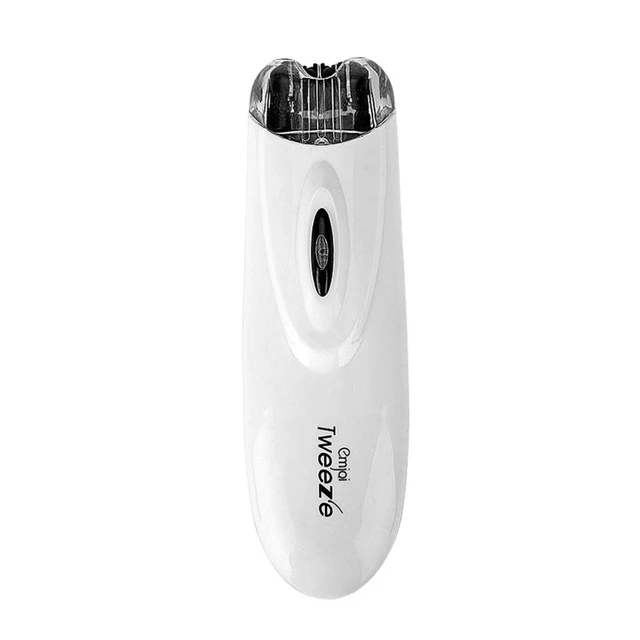Will epilating eventually stop hair growth?
Introduction:
Epilating is a popular method of hair removal that involves removing hair from the root using an epilator device. Many individuals wonder if epilating can eventually lead to a reduction in hair growth or even permanent hair removal. While epilation can result in slower hair regrowth and thinner hair over time, it is unlikely to completely stop hair growth. In this guide, we will explore the relationship between epilation and hair growth, the factors that influence hair growth, and the potential long-term effects of epilation on hair growth.

Will epilating eventually stop hair growth?
Understanding Hair Growth:
Before delving into the effects of epilation on hair growth, it is important to understand the natural hair growth cycle. Hair growth occurs in several stages, including the anagen (growth), catagen (transition), and telogen (resting or shedding) phases. Each hair follicle goes through these stages independently, which is why hair on different parts of the body grows at different rates.
Epilation and Hair Regrowth:
Epilation removes hair from the root, resulting in slower hair regrowth compared to methods like shaving or using depilatory creams. When the hair is removed from the root, it takes longer for the hair follicle to produce a new hair. This can lead to the perception of reduced hair growth over time. However, it is important to note that epilation does not alter the hair growth cycle or permanently stop hair from growing.
Factors Affecting Hair Growth:
Hair growth is influenced by various factors, including genetics, hormones, age, health, and lifestyle. These factors determine the rate, thickness, and density of hair growth. Epilation does not alter these underlying factors, which means that hair will continue to grow naturally according to an individual’s genetic predisposition and hormonal balance.
Long-Term Effects of Epilation on Hair Growth:
While epilation does not permanently stop hair growth, long-term epilation can have some effects on the hair itself. Consider the following aspects:
a. Hair Regrowth becomes Finer: With regular epilation over time, the regrowing hair may appear finer and softer. This is because repeated epilation weakens the hair follicle, resulting in thinner hair.
b. Slower Regrowth: With consistent epilation, the rate of hair regrowth may slow down over time. This is because the hair follicles become weaker and take longer to produce a new hair.
c. Hair Density Reduction: Some individuals may notice a reduction in the overall density of hair in the treated area over time. This is more likely to occur with long-term and consistent epilation.
d. Individual Variation: The effects of epilation on hair growth can vary among individuals. Factors such as genetics, hormones, and individual hair growth patterns play a role in determining the response to epilation.
Other Factors to Consider:
While epilation can have some long-term effects on hair growth, there are other factors to consider that may influence the overall results:
a. Hormonal Changes: Hormonal changes, such as those occurring during puberty, pregnancy, or menopause, can affect hair growth patterns. These changes may impact the effectiveness of epilation and the hair regrowth process.
b. Hair Color and Thickness: The color and thickness of hair can influence the perception of hair regrowth. Dark, coarse hair may appear more noticeable even after epilation, while lighter or finer hair may be less noticeable.
c. Consistency and Technique: Consistent and proper epilation technique is important for achieving optimal results. Regular maintenance and adhering to proper epilation technique can help minimize hair regrowth and maximize the benefits of epilation.
d. Individual Expectations: It is important to have realistic expectations when it comes to epilation. While it can result in slower hair regrowth and finer hair over time, it is unlikely to lead to permanent hair removal or complete cessation of hair growth.
Other Permanent Hair Removal Options:
If the goal is permanent hair removal, there are other methods to consider, such as laser hair removal or electrolysis. These treatments target the hair follicles and can result in long-term reduction or removal of hair. However, it is important to note that these methods require multiple sessions and may not guarantee complete hair removal for all individuals.
Conclusion:
Epilation offers a method of hair removal that results in slower hair regrowth and thinner hair over time. While it does not permanently stop hair growth or alter the natural hair growth cycle, consistent epilation can have long-term effects on the hair itself. With regular use, hair regrowth may become finer, slower, and less dense. However, the effectiveness of epilation can vary among individuals due to factors such as genetics, hormones, and individual hair growth patterns. It is important to have realistic expectations and understand that epilation is not a permanent hair removal solution. If the goal is permanent hair reduction or removal, other methods such as laser hair removal or electrolysis may be more suitable.
